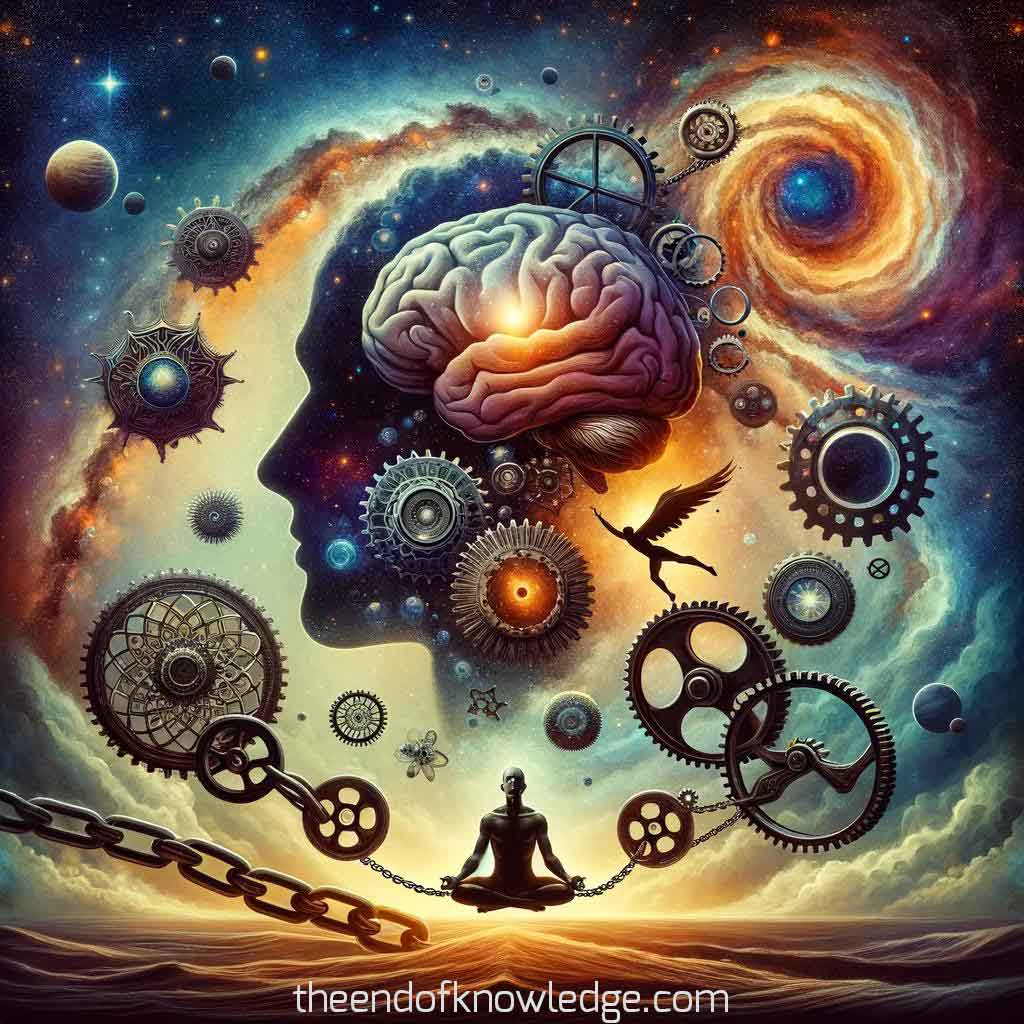 >
>
Concept Graph (using Gemini Ultra + Claude3):
Custom ChatGPT resume of the OpenAI Whisper transcription:
1.- Annaka Harris discusses the illusion of free will, suggesting that the feeling of having a self or consciousness that drives decisions is mostly an illusion, not separated from brain processes.
2.- She differentiates between free will and conscious will, explaining that while our brains engage in complex decision-making processes that could be termed "free will," our conscious experience of making these decisions is often illusory.
3.- Harris highlights the importance of challenging our intuitions to advance scientific understanding, particularly in consciousness studies where progress is hampered by entrenched intuitions.
4.- She emphasizes the role of shaking up intuitions in scientific breakthroughs throughout history, suggesting that major discoveries often require us to let go of false intuitions about the world.
5.- Harris shares her personal challenge in shifting her mindset to think clearly about consciousness and free will, underscoring the counterintuitive nature of these concepts.
6.- The discussion touches on the influence of meditation and solitude on Harris's ability to think about these complex topics, suggesting that these practices help her engage with the material more effectively.
7.- Harris argues that the feeling of making a conscious decision (conscious will) is an illusion, with brain processes driving decisions unbeknownst to our conscious selves.
8.- She explores the concept of decisions being predetermined by a complex array of factors leading up to a moment, challenging the notion of free will.
9.- Harris delves into her fascination with consciousness originating from her interest in physics, highlighting her lifelong curiosity about the nature of reality.
10.- She discusses the challenge of communicating complex ideas about consciousness and free will effectively, particularly in spoken form compared to writing.
11.- Harris emphasizes the value of writing for clarity in her own understanding of consciousness, using the process of writing to refine her thoughts and intuitions.
12.- She shares an anecdote from her childhood that illustrates her early fascination with questioning and understanding the world, a trait that has informed her work on consciousness.
13.- Harris comments on the difficulty of shifting public and scientific understanding based on new findings in neuroscience, indicating a slow integration of these ideas into broader cultural awareness.
14.- The conversation touches on the potential of studying the brain to unlock answers about consciousness, with Harris expressing optimism about neuroscience's role in this exploration.
15.- Harris and Lex Fridman discuss the challenge of maintaining mental health while engaging deeply with the complex and often counterintuitive ideas surrounding consciousness and free will.
16.- They explore the idea that challenging intuitions and exploring unconventional ideas are necessary for scientific progress, despite the risks of being perceived as "crazy" or unorthodox.
17.- Harris expresses concern that the public's perception of scientists as arrogant or disconnected is often a misinterpretation of scientists' cautious communication about their findings.
18.- The discussion covers the potential impact of language and cultural differences on perceptions of self and consciousness, suggesting that the way we talk about these concepts can shape our understanding of them.
19.- Harris shares insights from her upcoming audio documentary on consciousness, which aims to further explore the questions and themes she addresses in her book and other work.
20.- She discusses the intriguing possibility that consciousness might be a fundamental aspect of reality, rather than a byproduct of complex brain processes, and explores various scientific theories that could support this view.
21.- Harris speculates on the idea that consciousness might permeate all matter, potentially indicating that felt experiences could exist in all forms of matter, a notion she acknowledges as sounding extreme even to herself.
22.- She considers the concept that if consciousness is fundamental, it must be integral to the most basic elements of reality, suggesting a paradigm where consciousness is woven into the fabric of existence itself.
23.- Harris expresses the complexity of advancing the science of consciousness, noting the challenge lies not just in scientific exploration but also in overcoming deeply ingrained intuitions and misconceptions about consciousness.
24.- The conversation delves into Integrated Information Theory (IIT) developed by Christophe Koch and Giulio Tononi, highlighting its significance in suggesting that even simple entities like electrons could possess a form of consciousness.
25.- Harris critiques certain aspects of IIT, pointing out its limitations due to what she perceives as false intuitions about self and free will, suggesting these misconceptions could hinder the theory's progress.
26.- The dialogue touches on the challenge of researching consciousness scientifically, acknowledging the difficulty of studying something as fundamental and elusive as consciousness, yet maintaining optimism about the pursuit's importance.
27.- Harris discusses the potential of sensory substitution and addition experiments, like giving humans a sense of magnetic north, to expand our understanding of consciousness by providing new qualia or sensory experiences previously inaccessible to humans.
28.- The interview explores the relationship between consciousness and the default mode network in the brain, suggesting that experiences of reduced self-awareness, such as those encountered in meditation or psychedelic drug use, can lead to feelings of interconnectedness with the universe.
29.- Harris shares her personal experiences with anxiety and postpartum depression, discussing the effectiveness of medication, meditation, and psychedelic therapy in her recovery and overall mental health.
30.- The conversation concludes with reflections on the philosophical and psychological implications of understanding consciousness, free will, and the self, emphasizing the potential for these insights to foster a deeper connection to the universe and improve well-being.
Interview byLex Fridman| Custom GPT and Knowledge Vault built byDavid Vivancos 2024